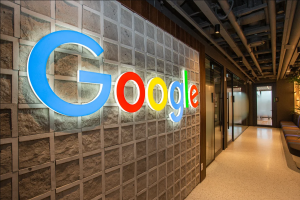USA, UK are officially declared ‘enemies of the internet’
![]() The saying goes that any publicity is good publicity, in which case the NSA is absolutely lapping it up right now. So what’s the latest headline grabber courtesy of everybody’s favorite electronic surveillance agency? Oh well, you know, it’s efforts have only just gone and landed the USA, alongside the UK, on Reporters Without Borders (RSF)’ official “Enemies of the Internet” blacklist.
The saying goes that any publicity is good publicity, in which case the NSA is absolutely lapping it up right now. So what’s the latest headline grabber courtesy of everybody’s favorite electronic surveillance agency? Oh well, you know, it’s efforts have only just gone and landed the USA, alongside the UK, on Reporters Without Borders (RSF)’ official “Enemies of the Internet” blacklist.
The organization’s latest report underlines the growing threat posed to journalists by censorship and surveillance, and following the disclosures by Edward Snowden last year, the US and the UK now rank as some of the net’s biggest bogeymen, up there with the likes of Cuba, North Korea, China, Iran, Saudi Arabia, Vietnam, Belarus, Bahrain, Turkmenistan and Syria.
But is it really fair to compare the US and UK to the likes of China and Syria, which cut of access to thousands of websites and routinely detain and torture those who use the web to spread dissent? Reporters Without Borders says it is. It argues that the US and UK’s actions are especially damaging as they serve to justify the extreme repression of other countries.
“The mass surveillance methods employed in these three countries, many of them exposed by NSA whistleblower Edward Snowden, are all the more intolerable because they will be used and indeed are already being used by authoritarian countries such as Iran, China, Turkmenistan, Saudi Arabia and Bahrain to justify their own violations of freedom of information,” says RSF in its report.
“How will so-called democratic countries be able to press for the protection of journalists if they adopt the very practices they are criticizing authoritarian regimes for?”
![]() RSF also calls out the massive yet little-known surveillance industry, a collection of private companies that designs and sells software, infrastructure and training to governments (both democracies and dictatorships), whose expertise makes all of that snooping possible.
RSF also calls out the massive yet little-known surveillance industry, a collection of private companies that designs and sells software, infrastructure and training to governments (both democracies and dictatorships), whose expertise makes all of that snooping possible.
It’s not only the snooping, but also the extent to which the USA will go to protect its spies from bad publicity. RSF criticizes the Obama administration for its treatment of journalists and their sources, citing the cases of Barrett Brown, James Risen and also Jacob Appelbaum, and describing their treatment as a “witch-hunt”. Summarizing the extent of US web surveillance, the report notes the NSA has the unprecedented ability to “monitor the internet at the infrastructure level”.
Perhaps the UK’s inclusion on the list is even more deserving. RSF notes that the UK’s GCHQ has made unbridled efforts to “master the internet” and quotes Snowden himself as saying that they’re “worse than the US”. The UK has the added advantage of its geographical location, which means its sits on no less than 49 cables that carry web traffic around the world – all of which are ‘tapped into’ on a regular basis. In addition, GCHQ is guilty of constantly trying to undermine the most commonly used encryption standards in the world, while the government has openly likened journalists with terrorists, threatening legal action against those who facilitated the Snowden leaks.
So the US and the UK may deserve to be labeled as “enemies of the internet”, but will this naming and shaming change anything? That’s unlikely, but RSF is at least attempting to do so, releasing a list of recommendations in the hope that these will lead to reform. These include a call for the United Nations to create a group to work on digital freedoms; for the EU to combat surveillance mechanisms; and for governments to be more transparent regarding the surveillance requests they demand from businesses like Google and Microsoft.
In the meantime, journalists and others can do a lot to protect themselves against surveillance using encryption technology. As Snowden has said repeatedly, “Encryption works. Properly implemented strong crypto systems are one of the few things that you can rely on.”
If only everyone would start using end-to-end encryption, then the NSA’s dragnet surveillance would quickly be rendered totally ineffective – the biggest challenge is to make encryption more popular and accessible, something that MEGA with its encrypted email service, and Silent Circle/Lavabit are doing with their encrypted chat service, both of which claim they can protect everything, even your message’s metadata. Whether or not these will truly be NSA-proof remains to be seen though. Reporters Without Borders message is quite clear:
“The Internet is a collective resource. Don’t let ‘Enemies of the Internet turn it into a weapon in the service of special interests.”
And we can now count the US and the UK among those ‘enemies’.
Main photo credit: DonkeyHotey via photopin cc Undersea cable photo credit: Plarad Japan via photopin cc
A message from John Furrier, co-founder of SiliconANGLE:
Your vote of support is important to us and it helps us keep the content FREE.
One click below supports our mission to provide free, deep, and relevant content.
Join our community on YouTube
Join the community that includes more than 15,000 #CubeAlumni experts, including Amazon.com CEO Andy Jassy, Dell Technologies founder and CEO Michael Dell, Intel CEO Pat Gelsinger, and many more luminaries and experts.
THANK YOU













